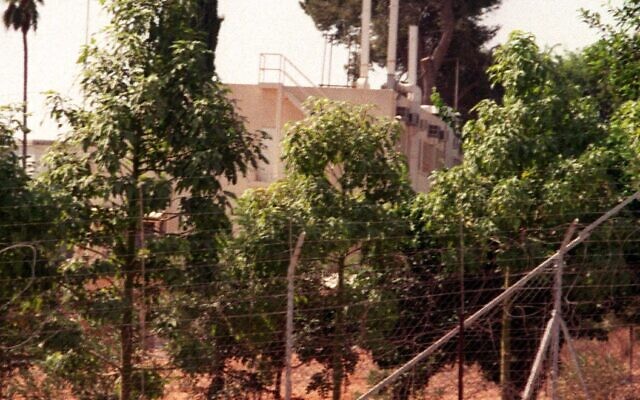In a possible breakthrough, an Israeli Defense Ministry-run laboratory claimed it had completed successful coronavirus vaccine trials on rodents, paving the way to further testing on other animals and then possibly human trials.
In a paper published Friday on the website of bioRxiv, an online repository for papers that haven’t yet been peer-reviewed, the Israel Institute for Biological Research, which is based in Ness Ziona, said it hopes to have a finished vaccine in a year, or possibly even earlier.
In the abstract of the report, the researchers say their vaccine, which they tested on hamsters, “results in rapid and potent induction of neutralizing antibodies against SARS-CoV-2,” the virus that causes COVID-19.
Get The Times of Israel’s Daily Edition by email and never miss our top stories
Free Sign Up
During the trials, two groups of rodents were infected with the coronavirus, but only one group had first been given the vaccine. Whereas the unvaccinated group became sick, the vaccinated rodents remained healthy, researchers claimed.
“Importantly, single-dose vaccination was able to protect hamsters against SARS-CoV-2 challenge, as demonstrated by the abrogation of body weight loss of the immunized hamsters compared to unvaccinated hamsters,” they wrote in the report.
While the lungs of infected hamsters showed extensive tissue damage and a high viral load, the report said that those given the vaccine “showed only minor lung pathology” and had no viral titer.
Testing on rodents is a key preliminary stage in developing medicines and enables further testing to begin on other animals. If those are also successful, the trials will move to humans to check the vaccine’s effectiveness and for any side effects, the report said.



The Israel Institute for Biological Research, is seen in this file photo, hidden behind shrubs and barbed-wire in the Israeli town of Ness Tziona, south of Tel Aviv, Oct. 14,1998. (AP Photo/Mark Levie)
Earlier this month, the laboratory confirmed that it had isolated an antibody it believed could be used to develop treatments for COVID-19, and that it was ahead of the world in those efforts. This would not be useful in the creation of a vaccine, but would rather be a move toward a drug treatment for those who have already contracted the disease.
While a number of scientific institutions around the world have discovered antibodies capable of destroying the COVID-19 virus, the laboratory said at the time it was the first in the world to reach three major milestones: finding an antibody that destroys the virus; that targets this coronavirus specifically; and that is monoclonal, lacking additional proteins that can cause complications for patients.
The secretive research institute was thrust into the headlines after outgoing defense minister Naftali Bennett announced the isolation of the antibody in March, though the announcement appeared to have been premature.
According to a report by Israel’s Channel 12 news last week, the laboratory has since identified eight antibodies to COVID-19 and filed for an international patent on the technology. The antibodies were produced from blood taken from COVID-19 patients who developed serious symptoms, and then recovered. The lab hopes to combine the antibodies into an effective treatment for the virus. If researchers are able to make the medicine, they will seek an international drug company to mass produce it.
About 100 research groups around the world are pursuing vaccines for the coronavirus, with nearly a dozen in early stages of human trials or poised to start. But so far there is no way to predict which — if any — vaccine will work safely, or even to name a front-runner.
Dr. Anthony Fauci, the US government’s top expert, has cautioned that even if everything goes perfectly, developing a vaccine in 12 to 18 months would set a record for speed.
The coronavirus has infected over 4.7 million people and killed more than 315,000 worldwide, according to the Worldometer website that experts say under-counts the true toll of the pandemic. Israel has had over 20,000 diagnosed cases of COVID-19, with 305 deaths as of Sunday.

